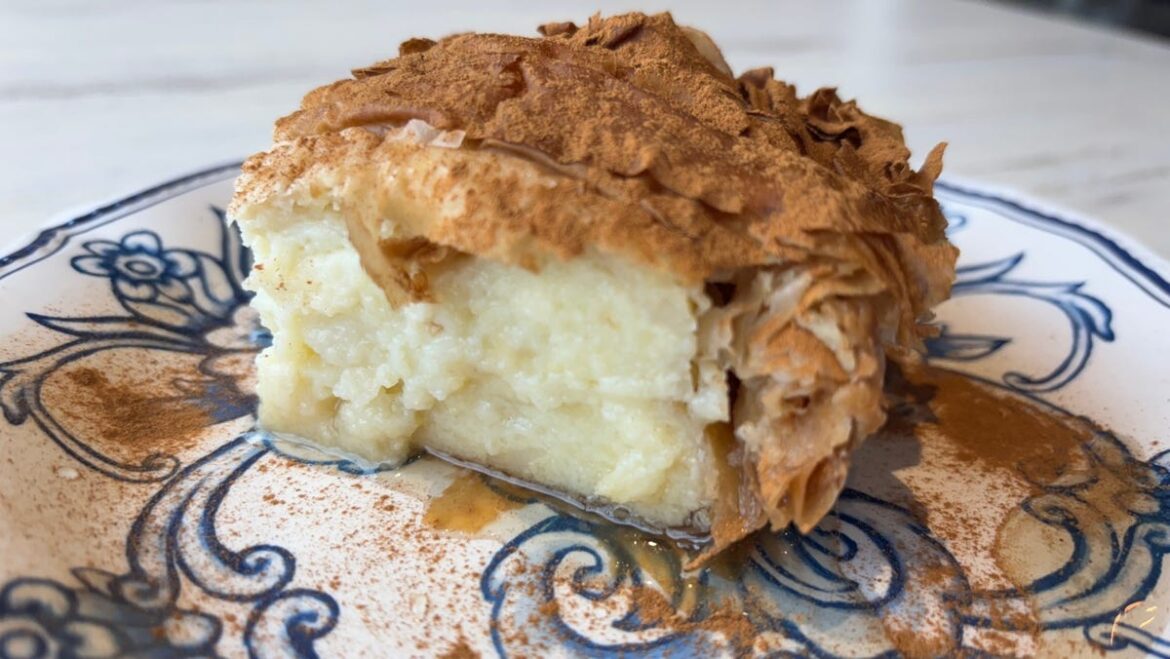Find the best food in Indianapolis weekly with INdulge
Get inspiration for your next lunch break, drinks with friends or night out from dining reporter Bradley Hohulin.
The sickest I’ve gotten in recent memory was just before I graduated college, when I achieved the elusive flu-to-strep combo in the span of three weeks.
But on one precious weekend that spring between the two debilitating illnesses, I celebrated Easter. More specifically Orthodox Easter, which my dear Greek American roommate Nicholas introduced to our otherwise Protestant-raised household by somehow conjuring up a feast for 10 people in the tiny, unevenly floored kitchen of our steadily decaying split-level student rental.
With Easter just days away for Western and Eastern Orthodox Christians alike, for this week’s INdulge I strolled down memory lane with:
The best thing I ate in Indy this week
The holiday’s religious significance notwithstanding, that Easter Sunday I ate what one might call an ungodly amount of food. Sending me fork-first into my tailspin of gluttony at the meal’s end was Nicholas’ galaktoboureko, a traditional Greek dessert commonly eaten on Easter. Feeling nostalgic, I tracked down the same dish at The Med in Irvington.
Galaktoboureko features milk, eggs, butter and sugar combined with thickening agents (traditionally semolina flour) to form a dense custard baked between crackly sheets of phyllo dough. The finished product, which is served cold at The Med but can also be hot, is doused in a translucent syrup.
Hoosiers may find that galaktoboureko bears an unmistakable resemblance to Indiana’s iconic sugar cream pie. Both confections are plainly flavored yet delicious, as if someone following a dessert recipe checked off fat and sugar and then said, “Eh, good enough” — and they wouldn’t be wrong.
In truth, the history behind galaktoboureko is fuzzy. Many experts believe the dish first cropped up in the Byzantine Empire (330-1453), with mentions of a similar dessert called bougatsa appearing in records from that era.
Greece’s neighbor Turkey also claims the dish. The prefix gála means “milk” in Greek, while börek is a class of flaky pastries in Turkish cuisine. Regardless of which country created it, historians widely agree that galaktoboureko originated somewhere in the Mediterranean and is now found in the cuisine of multiple cultures, including Greek.
Standing tall atop a small white plate with blue floral patterns, The Med’s galaktoboureko ($7) gives a charming little wobble as your fork glides through it. The glistening custard has a texture somewhere between cheesecake and tres leches, with a sweet, slightly eggy flavor akin to an underbaked pound cake — one of life’s purest if not expressly FDA-approved pleasures. A final throat-tickling scatter of cinnamon completes the comforting confection.
I suspect those who grew up eating galaktoboureko at home will have a platonic ideal of the dish that no restaurant can recreate. For me it’s hard to top Nicholas’ rendition, which I consumed until my stomach hurt and the sugar seemed to coagulate in my veins. For reasons that elude me to this day, I ate even more of it when Nicholas offered me seconds.
In fairness, on that day I was mildly intoxicated by the joy of celebrating a special occasion with close friends, even if my typical version of Easter skews more ham-heavy. After a few bristling shots of an anise-flavored spirit called ouzo, our Easter dinner troupe joined hands in a circle out on our one-lane street to perform a traditional Greek dance called Tsamikos under Nicholas’s direction.
I sadly won’t be cutting loose to the dulcet tones of Greek folk music this year. Still, I’ll gladly eat The Med’s exemplary galaktoboureko for a taste of that bygone Easter, when my clumsy feet struggled to keep pace with the Tsamikos and my stomach churned with the heft of too much custard, making the whole ordeal feel a bit like a fever dream — which, given my health at the time, it very well may have been.
If that was the case, so be it. At least it was a sweet one.
What: Galaktoboureko, $7
Where: The Med, 5614 E. Washington St., (317) 550-2512, themedindy.com
In case that’s not your thing: Greek tradition abounds at the Med, with dishes such as the lasagna-like moussaka (eggplant, ground beef and béchamel, $16) and gemista (ground beef- and rice-stuffed bell peppers, $18). For flavors more familiar to Westerners, try the gyros (lamb, beef, chicken or pork, $13) or vegetarian-friendly falafel sandwich ($12). The Med also offers a handful of Italian and Italian American dishes like Bolognese ($16) and pesto ravioli ($14) in case you’re dining with someone who for some mystifying reason is averse to Greek food.

